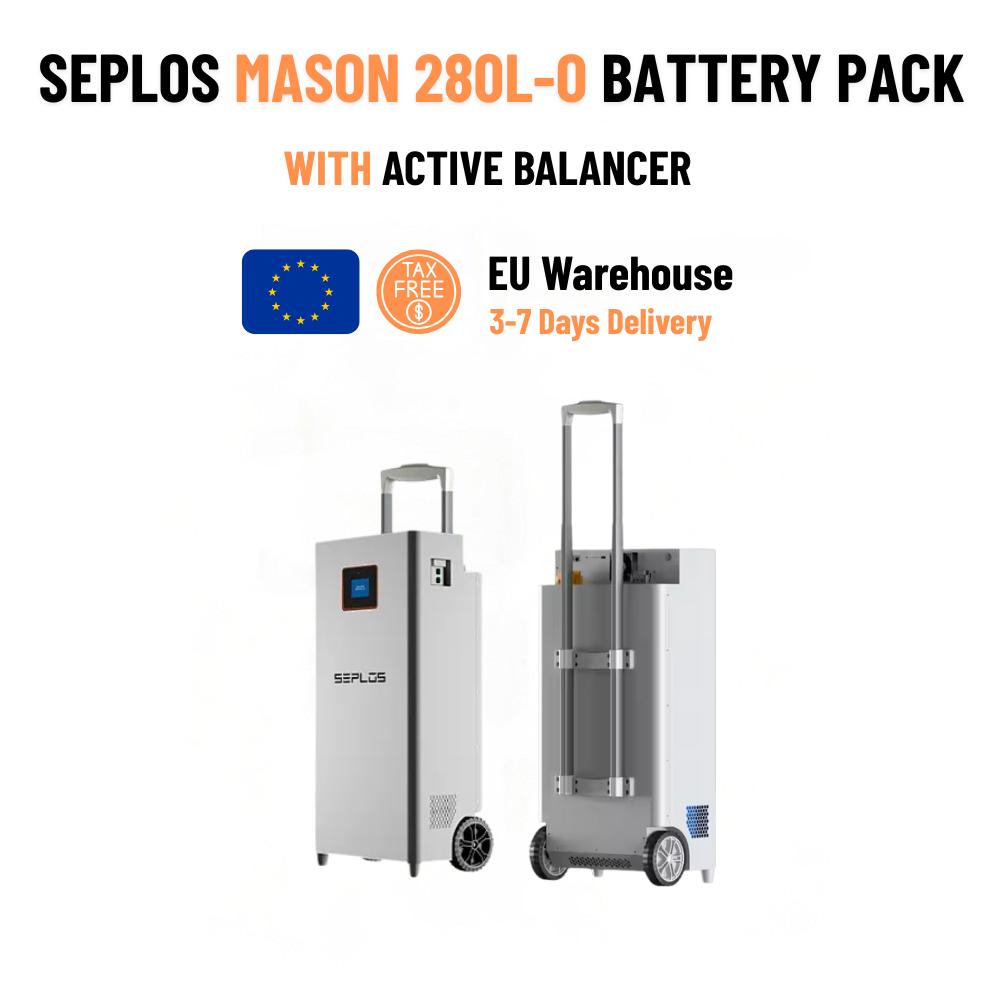
Battery Pack for Off-Grid Living: What You Need to Know
In recent years, off-grid living has gone from niche to mainstream, driven by rising electricity costs, increasing environmental awareness, and the growing need for energy independence. Whether you’re living in a remote cabin, setting up a vanlife system, or preparing a backup solution for grid failures, having the right battery pack for off-grid living is critical.
But with so many options on the market, how do you know what to look for? In this guide, we’ll walk you through everything you need to consider before choosing the right battery pack for your off-grid setup.
1. Why Energy Storage Matters in Off-Grid Systems
When you disconnect from the grid, you lose the immediate and constant supply of electricity. Solar panels, wind turbines, or generators can help generate power, but energy supply isn't always aligned with demand. That’s where battery storage comes in — it bridges the gap between generation and consumption.
A battery pack stores excess power during the day (especially from solar panels) and makes it available at night or during cloudy weather. Without it, your system would be unreliable and potentially unusable during outages or low-production periods.
2. Types of Batteries for Off-Grid Applications
There are several types of batteries commonly used in off-grid systems. Each comes with its own pros and cons:
Lead-Acid Batteries
These are affordable and widely available but have low energy density and shorter lifespans. They’re best suited for users with tight budgets and less frequent usage patterns.
Lithium-Ion Batteries
Lithium-based options, particularly LiFePO4, have become the gold standard for off-grid use due to their longer cycle life, higher energy density, lower maintenance, and superior safety profiles.
Nickel-Based Batteries
These are less common but can still be found in niche industrial or cold-temperature applications. However, they’re typically more expensive and less efficient for residential off-grid setups.
3. Key Specifications to Consider
Choosing the right battery involves more than just capacity. Below are the critical technical specs to evaluate:
Battery Capacity (kWh)
Capacity indicates how much energy your battery can store. For off-grid homes, a system between 10kWh and 20kWh is typical, depending on your consumption. A 15kWh battery is a great mid-range option, capable of supporting a medium-sized household for 12–24 hours depending on usage.
Depth of Discharge (DoD)
This tells you how much of the battery’s stored energy can be used before it needs recharging. Lithium batteries usually offer a DoD of 80–95%, much higher than lead-acid.
Cycle Life
This refers to the number of charge/discharge cycles a battery can endure before its capacity starts to degrade significantly. The higher the cycle life, the better for long-term off-grid use.
Charge/Discharge Rate
Some batteries support fast charging and high discharge currents, which is crucial for powering large appliances or running multiple devices at once.
Operating Temperature Range
Off-grid installations are often exposed to harsh environmental conditions. Choose a battery that can withstand temperature fluctuations without performance loss.
4. Recommended Battery Solutions for Off-Grid Living
When choosing a product, it’s important to opt for solutions that are specifically built for off-grid resilience, reliability, and ease of integration.
Mason 280 Battery Pack
The Mason 280 battery pack is a modular, high-performance energy storage solution ideal for off-grid applications. Built with advanced LiFePO4 cells, it offers high cycle life, excellent thermal stability, and scalable capacity — making it perfect for cabins, RVs, or backup energy systems. It supports multiple parallel connections, so expanding your storage in the future is easy.
15kWh Battery Systems
A 15kWh battery strikes the perfect balance between capacity and cost for most off-grid homes. It offers enough storage to power essential loads overnight — including lighting, refrigeration, and communications. Some models come with integrated BMS and inverter compatibility, which simplifies installation and operation.
5. Battery Management System (BMS): Why It Matters
A good BMS protects your battery pack by monitoring parameters like temperature, current, and voltage. It prevents overcharging, deep discharging, and overheating — all of which can shorten your battery’s lifespan or pose safety hazards.
Make sure the battery you choose includes a smart BMS, especially if you plan to install it in a place with variable temperatures or heavy usage.
6. Safety Considerations for Off-Grid Batteries
Safety is paramount, especially when your system is running unattended for hours or even days. Here are some best practices:
-
Use batteries with LiFePO4 chemistry for the best thermal and chemical stability.
-
Ensure proper ventilation in battery enclosures.
-
Install proper circuit protection like fuses and breakers.
-
Avoid mixing batteries of different brands, ages, or chemistries in one system.
7. Installation and Maintenance Tips
Installing an off-grid battery system isn’t just plug-and-play. Here are some tips to ensure optimal performance:
-
Work with a certified installer: Especially for systems over 48V or 10kWh, proper wiring and configuration are critical.
-
Plan for expansion: Choose battery systems that support modular scaling.
-
Regular maintenance: While lithium batteries are low maintenance, occasional system checks can extend lifespan and catch issues early.
8. Cost and ROI Considerations
Battery systems are a significant investment, but they pay off over time through energy independence, lower utility bills, and greater resilience. The Mason 280 battery pack and 15kWh battery systems tend to offer excellent cost-per-cycle ratios, making them economically viable for most off-grid homeowners.
To estimate your ROI, factor in:
- Daily electricity savings
- Longevity (cycles x average usage)
- Installation costs
- Maintenance and potential replacement parts
9. Conclusion: Power Your Off-Grid Dreams Wisely
A reliable battery pack is the cornerstone of a successful off-grid energy system. Whether you go for a Mason 280 battery pack or a scalable 15kWh battery, be sure to match your choice with your actual power needs, budget, and installation environment.
As technology evolves, battery efficiency, safety, and affordability continue to improve — making off-grid living not only possible but practical for more people than ever before.
If you're ready to start or upgrade your off-grid setup, now is the time to invest in a robust and future-proof battery system.

